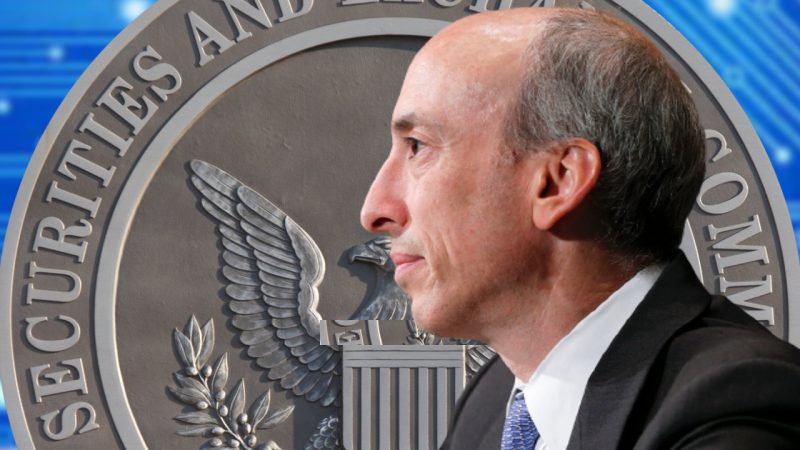Cryptocurrencies have yet again managed to take the centre stage in the US, with regulators addressing the elephant in the room. Just a day back, for instance, Congressman Warren Davidson introduced the “Keep Your Coins Act,” a legislation that would protect self-custody and P2P transactions, if passed.
Gensler on duty
As the multi-trillion dollar market for digital money continues to grow, investors have been eagerly awaiting news on how the apex regulatory agency, the Securities and Exchange Commission [SEC], plans to regulate it.
A couple of days back, the Chairman of the SEC, Gary Gensler, proclaimed that the body was working with the Commodity Futures Trading Commission (CFTC) on crypto regulations.
In a recent Fox Business News interview, the SEC chair offered some more clarity with respect to regulations, with the focus being on the evergreen security v. not a security debate.
Obsolete regulations
Specifically outlining what falls under the purview of security, Gensler went on to highlight how in the 1930s, after the collapse of the markets and the public getting defrauded, there was basic bargaining. The Congress, at that time, wrote with a very broad brush, the definition of security. Elaborating on the same, Gensler said,
“They included 32 different terms and amongst those terms, the conceptional framework is the public investing money anticipating profits on the efforts of others. And the Supreme Court in the 1940s and multiple times since then has had the same approach. My predecessor Sir Jay Clayton said it, and as well as I could say it, that in looking at these tokens it is rare to find one that isn’t doing that.”
Well, the financial landscape has evolved over the years and the market’s dynamics have parallelly changed. In such a scenario, using a definition laid down in the 1930s as a yardstick to classify assets as securities doesn’t hold water.
In fact, people from the space were quick to highlight that the laws in the US are “due for a makeover.”
Ripple:Ethereum :: Security:Not-A-Security?
Gary Gensler has remained tight-lipped about specifics and has more often than not steered away from commenting in public about nuances with respect to any subject. When asked to draw a line of distinction between security and currency in the same Fox News interview, Gensler went on to give a pretty blunt response.
The interviewer Liz Claman outlined how people from the space do not find a lot of difference between what Ripple did by selling its underlying XRP to build a blockchain network from Ethereum floating a coin offering to help its underlying Ethereum blockchain. Opining on the same, Gensler said,
“It’s pretty straightforward – raise money from a public issue side you have a basic bargain of full and fair disclosure and anti-fraud protections and you register with the government agency called the Securities and Exchange Commission.”
He added,
“We’re technology-neutral. If people want to invest or speculate in this field, then these tokens, and most importantly the platforms, the trading and lending platforms, come in and register, do it within the law, not trying to skirt the law.”
Here it should be noted that the Securities and Exchange Commission filed a lawsuit against blockchain payments firm Ripple back in December 2020 arguing that its native XRP tokens fall under the “security” category and not a “currency.” It has been alleged that Ripple and its executives sold $1.3 billion worth XRP in an “unregistered” securities offering. Per the agency, Ripple is different because XRP was actively used to fund Ripple’s business and essentially represented an investment in the company itself.
In its defense, Ripple brought to light a 2018 speech by Hinman, former director of Corporation Finance, where he told the audience at a conference that, in his view, Ether was not a security. The individual offerings made by Ether and XRP, to a fair extent, have been similar in nature, and if Ether is not considered to be a security, why is XRP? In fact, additional questions with respect to what exactly does it mean to register still remain unanswered.
Ripple, at this stage, is negotiating that for the whole industry, and until and unless its lawsuit against the SEC concludes, we won’t have a definitive answer to the aforesaid questions.





